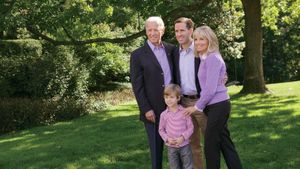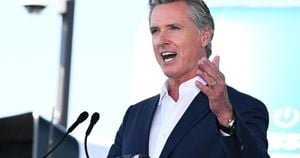Volkswagen Group is reconsidering its direct sales model for electric vehicles (EVs) due to slower than anticipated sales. Over the past few years, the German automaker had aimed to transition to a more innovative agency model, which would allow it to sell more vehicles directly to consumers instead of through franchised dealerships. This shift was meant to streamline the purchasing process and adapt to the growing demand for electric vehicles but has not unfolded as successfully as planned. Reports indicate the company is now planning to revert largely to the traditional franchise model for its brands, which include Volkswagen, Audi, and Skoda, by the end of the first quarter of 2025.
According to Marco Schubert, who is part of the VW Group's extended executive committee for sales, the full transition to the agency model remains VW’s long-term goal. "The full agency with direct sales to customers clearly remains our guiding star in the long term. But we have to re-evaluate if our current agency model for all-electric vehicles delivers the best possible customer experience," he said.
This consideration stems from the slower adoption rates of electric vehicles, which have lagged behind VW's expectations. The company is facing unique challenges selling both EVs and internal combustion engine vehicles (ICE) using dual sales models. The agency model is intended for the all-electric vehicles, but the complexity of managing two models simultaneously has proven to be particularly difficult. Maintaining such complexity can overwhelm sales organizations and compromise the customer experience.
Initially, Volkswagen had announced its intention to adopt the agency model for its EVs back in 2020 with the launch of its ID.3. At the time, it was seen as part of the company’s ambitious strategy to lead the electric vehicle market. Brands like Cupra started the agency model earlier with promising results, but as the market has evolved, the need for flexibility has become apparent.
Stellantis, Ford, and Jaguar Land Rover are among the other automotive giants who have also reconsidered their direct sales strategies over the past year. This trend reflects the broader challenges many manufacturers face as they attempt to pivot toward electrification. For VW, the review process will involve collaboration across wholesale and retail segments to assess whether it might be beneficial to revert to indirect sales for all battery electric vehicles.
Currently, sales for fleet vehicles will remain under the established agency agreements, offering some stability amid the restructuring. The automaker also confirmed plans to reduce its number of retail partners and physical locations, which could see the total number of retail partnerships cut significantly, likely down to just 25 from 132 within its current network of franchises.
Despite the short-term challenges, VW Group continues to remain optimistic about its long-term strategy. The internal review is focused on evaluating consumer preferences and market conditions, ensuring they can provide the best experience possible for potential buyers. A spokesperson for the company said, "Changing framework conditions might require changes in the short- to mid-term to guarantee the best possible customer experience." This indicates VW's willingness to adapt to the realities of the EV marketplace, prioritizing consumer satisfaction alongside its ambitious electrification goals.
Overall, it seems VW’s planned reconsideration of its sales strategy will be closely monitored as it seeks to balance innovative sales channels with established, effective methods of distribution. The decision, expected to come by the end of the first quarter of 2025, will reflect the automotive giant's drive to maintain its competitive edge amid rapidly changing consumer expectations and technological advancements.



